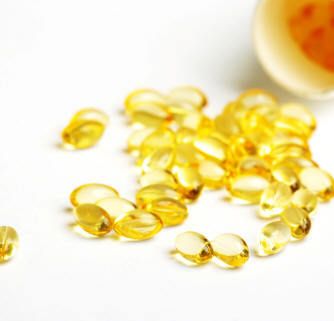Vitamin D - Fact and Fiction

The media has been full of information lately about Vitamin D. Not all of it has been correct.
Everyone from the your local newspaper to Dr. Oz have been pushing the public to increase their intake of Vitamin D. The claimed health benefits range from increased energy to cancer prevention and reductions in heart disease. While Vitamin D is an important nutrient some of its benefits are well documented and others are not. This newsletter will attempt to clarify these issues, but first a bit of the basics...
Most of the studies involving Vitamin D have been epidemiological studies. For example, scientists noticed that people living in lower latitudes where it is sunnier where less likely to have colon cancer. They postulated that these people had higher sun exposure and higher vitamin D levels and therefore Vitamin D might explain the difference. The problem with studies like this is that there may be many other differences between these groups of people like diet, race, ethnic background, availability of heath care etc. which may have lead to the difference in cancer rates.
The most reliable type of study is a double blind placebo controlled study. This sort of study is the best way to identify whether there is a real correlation between two factors such as Vitamin D intake and cancer. To date no well designed placebo controlled studies have been done that show a reliable link between increased vitamin D intake and cancer reduction, and NONE have looked at the benefits or risks of measuring and then supplementing low vitamin D levels
Unfortunately there has been a rush to judgment on this issue within the media and even among some in the medical community in an effort to be on the leading edge. Many have begun telling people to have their vitamin D levels checked and have even recommended taking very large doses of Vitamin D if the levels are low. At the moment there is no evidence that this approach is beneficial or even safe.
Please visit the link below for more information on Vitamin D from the National Institutes of Health.
NIH Vitamin D Fact Sheet
Everyone from the your local newspaper to Dr. Oz have been pushing the public to increase their intake of Vitamin D. The claimed health benefits range from increased energy to cancer prevention and reductions in heart disease. While Vitamin D is an important nutrient some of its benefits are well documented and others are not. This newsletter will attempt to clarify these issues, but first a bit of the basics...
- Where do we get Vitamin D?
- How much Vitamin D do we need?
- Is it possible to get too much vitamin D?
- What are the known benefits of vitamin D?
- If all of this is old news, why all the recent attention to vitamin D?
Most of the studies involving Vitamin D have been epidemiological studies. For example, scientists noticed that people living in lower latitudes where it is sunnier where less likely to have colon cancer. They postulated that these people had higher sun exposure and higher vitamin D levels and therefore Vitamin D might explain the difference. The problem with studies like this is that there may be many other differences between these groups of people like diet, race, ethnic background, availability of heath care etc. which may have lead to the difference in cancer rates.
The most reliable type of study is a double blind placebo controlled study. This sort of study is the best way to identify whether there is a real correlation between two factors such as Vitamin D intake and cancer. To date no well designed placebo controlled studies have been done that show a reliable link between increased vitamin D intake and cancer reduction, and NONE have looked at the benefits or risks of measuring and then supplementing low vitamin D levels
Unfortunately there has been a rush to judgment on this issue within the media and even among some in the medical community in an effort to be on the leading edge. Many have begun telling people to have their vitamin D levels checked and have even recommended taking very large doses of Vitamin D if the levels are low. At the moment there is no evidence that this approach is beneficial or even safe.
- As a patient what should I do?
Please visit the link below for more information on Vitamin D from the National Institutes of Health.
NIH Vitamin D Fact Sheet
Recent
Are You Really Allergic to Penicillin? The Truth Might Surprise You
January 19th, 2025
Understanding Homeopathy: A Critical Look
October 25th, 2024
HPV Vaccines - Fact and Fiction
July 5th, 2024
Ear Pressure Problems: Navigating Eustachian Tube Dysfunction
June 24th, 2024
Carotid Doppler/Ultrasound Tests: Who should have this test done?
June 19th, 2024
Archive
2024
May
Ozempic - Obesity cure or panacea?GMO's (Genetically Modified Organisms) - Are they truly "Frankenfoods" or our best hope for feeding a hungry world?The Drip Dilemma: Why Healthy People Should Steer Clear of IV TherapyLung Cancer Screening - Is it time to get a CT scan?The Whole Truth Behind Whole Body MRI Scans – Overhyped, Overpriced, and Overrated!Understanding Sinus Infections: Beyond the Common ColdAbdominal Aortic Aneurysms: What You Need to Know
June
2014
March
May
2013
July
August
October
November
Omega 3's (Fish Oil and Flax Seed Oil) who should take them?How do you save a life ? - Just swab your cheekNew Cholesterol Guidelines - What's changed and what does it mean for you?Antibiotics and Probiotics- Why you shouldn't take either without a good reasonPreventing Heart Disease with almonds- Is this study Nuts?